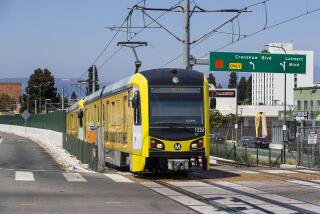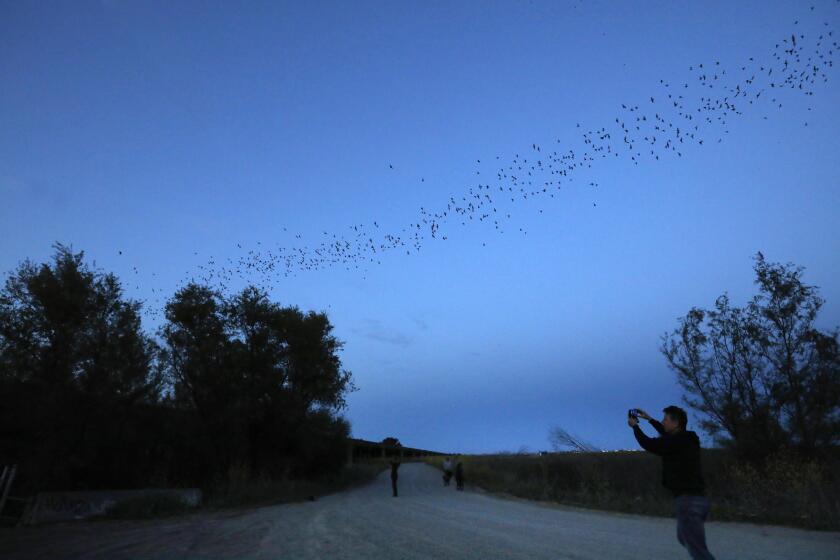Irvine : Tunnels to Bypass Train Tracks OKd
The Planning Commission on Thursday announced its support for a plan to dig roads under the railroad tracks at Culver Drive and Jeffrey Road rather than build overpasses.
On Jan. 27, the city Transportation Commission also recommended tunnels under the roads, even though transportation engineers recommended an overpass--which would have been $3.3 million cheaper--for Culver Drive. That is because a nearby drainage channel and shallow ground water make the underpass project more complex.
Both recommendations will go to the City Council on Feb. 25.
Irvine transportation officials have planned to have the thoroughfares bypass the railroad tracks since 1983 to make the crossings safer and keep traffic flowing smoothly. The projects have recently taken on greater urgency because train traffic is expected to triple in coming years and a $5-million state grant to build both structures expires in June.
Together, the projects would cost about $35 million. If the council approves them, it is expected to approve borrowing the money and repaying the debt over the next 20 years.
When the Planning Commission voted to recommend tunnels for Culver and Jeffrey, about 40 residents attending the meeting broke into applause. Residents acknowledged the higher cost of tunnels, but said the city should spend the extra money to avoid the lower property values, unsightliness and increased noise from the overpasses.
Besides simply approving a tunnel at Jeffrey, the commission also voted to recommend that the tunnel be built about 60 feet east of the roadway. Residents on the other side of the road asked for the move in order to reduce traffic noise.
The commission also recommended that planners study whether Jeffrey Road between Walnut Avenue and Irvine Center Drive could be moved 60 feet east to align with the proposed tunnel. Residents of the Meadows, Smoketree and Ranch communities on the west side of Jeffrey want the road and tunnel moved 400 feet from their homes rather than 60 feet to further reduce noise.
Moving the road that far would more than double the cost of the project and risk the $5-million state grant because a new road would require an environmental review, which would delay the project, said Manuel Gomez, a senior transportation analyst.
More to Read
Sign up for Essential California
The most important California stories and recommendations in your inbox every morning.
You may occasionally receive promotional content from the Los Angeles Times.










